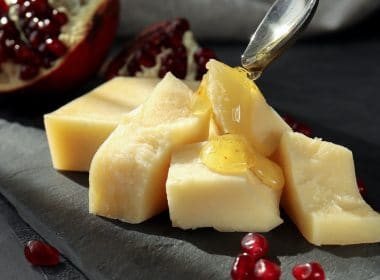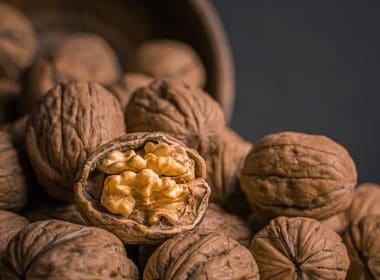What About Frozen Vegetables? 7 Interesting Facts
While in Supermarkets, we find lots of frozen foods, but what about frozen vegetables, are they bad for you, though? These days you can find them in out-of-season also. Frozen vegetables are vegetables like spinach, peas, and corn that are at low temperatures for storage and transportation.
They are sometimes less expensive when you compare them to fresh vegetables, and they have a long life when they are in a freezer.
You can cook frozen vegetables at home, but in preparing them at home, they could prove healthy only if you cook them correctly. You can easily mix it with other food types like pasta or cheese, for example.
Are Frozen Vegetables Good For Weight Loss?
For centuries in the cold climates, the freezing of foods was by tribes. The developing world did this technique in 1885 when the first send chicken and geese abroad. They went from Russia to London. Then the meatpacking industry, later on, started expanding this technique. Later in 1929, flash freezing was introduced to the American public by Clarence Birdseye.
When Clarence Birdseye (More commonly known as Captain Birdseye) was doing expeditions in 1912 and 1916, he saw natives using food freezing, and at that point, he became interested. At the end of World War 2, freezing foods became more accessible by having experimented with orange juice and vegetables.
What Are Frozen Vegetables
When you compare it to canning and dehydration, freezing is superior. At least, so they will say. The preservation demands the temperature of frozen vegetables is to be -18 degrees Celsius or below. Frozen foods have now become an essential part of the food industry. In countries with a high level of development, the U.S. is number one now in the exporting and importing of fresh vegetables. Especially as they are in the world trade arena.
The most dominating sector in the food industry is the freezing of foods. It has become a compelling, quick, and convenient way also at home to preserve fruits and vegetables. After harvesting fresh fruits and vegetables, they contain enzymes(Chemical compounds), which can cause color change and flavor changes.
You should freeze these fruits and vegetables straight away. It could stop the enzymes from having reactions in the fruits and vegetables we eat.
You can add these convenient, cheap, and rock-hard products to the risks list also. Let us have a look at why!
Risks Of Freezing Food
Though they are cheap and because of their easy availability, people most depend on frozen foods like french fries, frozen fish, and more. They contain partially hydrogenated palm oils, which could have hidden fats. Check out this other healthy produce
-
Sodium (Salt) Content
There are meals that you can freeze, which contain between 700-1800 mg of sodium.
That could lead to the risk of heart disease
When you harvest them, you will hold them at the freezing point. And that freezing point helps them in maintaining their nutrients. They will not lose their real nutrients. When you boil fruits and vegetables, they also lose a lot of their nutritious value. Freezing them helps in locking their nutritional value.
You can freeze a lot of healthy fruits and vegetables. Some of them are below
2. Corn
You can find corn with fiber, antioxidants, and B – vitamins. You can also eat them with salads, and sprouts can add them to vegetables. They are handy for the eyes too. They protect your eyes for macular degeneration. Macular degeneration is the foremost cause of blindness.
3. Green Beans
Green beans have a high silicon content. Therefore they are perfect for your eyes, and also for your bones.
4. Peas
According to Journals of Food Science, by freezing peas, there is an increase in antioxidant activity.
5. Spinach
A frozen Spinach contains more calcium than the fresh one. They mention it in a study from Poland.
6. Blueberries
Blueberries contain flavonoids. Well, these help to prevent heart disease and cancer, but according to a second study that was in North Carolina, if you use a microwave for heating them, their flavonoid levels rise. It is better to consume them within four months.
7. Cherries

Deep-frozen cherries are much better than canned cherries. According to the Journal of Food Science, the deep-chilled cherries have more cancer-fighting anthocyanins than the canned ones. But if you will like to wait for a long time to eat them, they will lose their nutrients.
How To Cook Vegetables Effectively
To freeze vegetables first, you have to boil them thoroughly. For fruits, you do not need to boil them. You can freeze them straight away. When you finish boiling, keep them in a large bowl of ice water. Drain them properly, spread them on a large sheet, and freeze them until they become stable.
Now, after that, in freezer bags of gallon size packs, keep the frozen vegetables and fruits. You can seal them airtight with the vacuum sealer before storing it in a freezer. Vacuum seals help in keeping the flavor fresh by removing the air from a package. Vacuum seals are cheap, comfortable, and very light.
If you want to use frozen vegetables to make a quick dish, you can add 2 or 3 tablespoons of water, cover it adequately and place it in a microwave. If you want to steam them, then take the saucepan, place in a steamer bag with an inch or two of boiling water. When you reheat frozen vegetables, it’s OK to use a microwave. It will only take you 2-3 minutes. If you want to steam them, it will take 3-4 minutes.
Hardly Any Negatives Sides To Frozen Vegetables
When you read this article, you can find there are not any negative sides to frozen vegetables. You can quickly freeze vegetables and fruits in your home also. While these frozen fruits and vegetables are cheap, they are conveniently available at your nearest supermarket. So, try to go for frozen fruits and vegetables if you don’t want to try them.
Please leave any comments or questions you may have below?
Further Reading
Are they the same nutrition as fresh?







